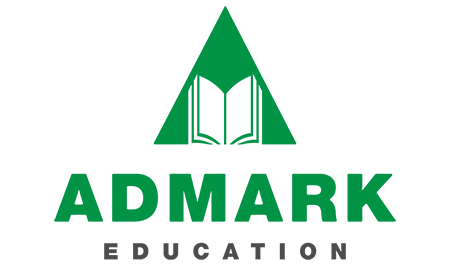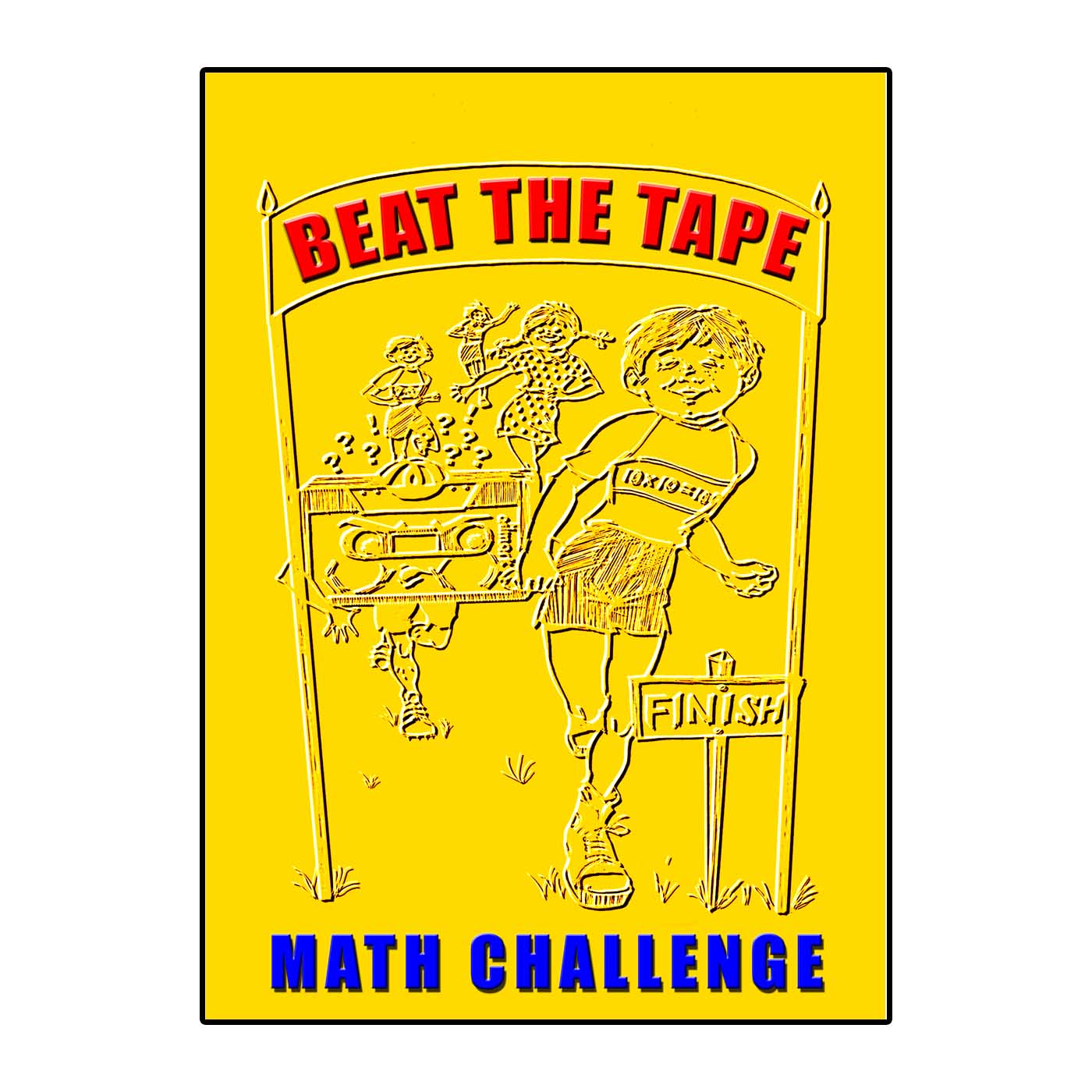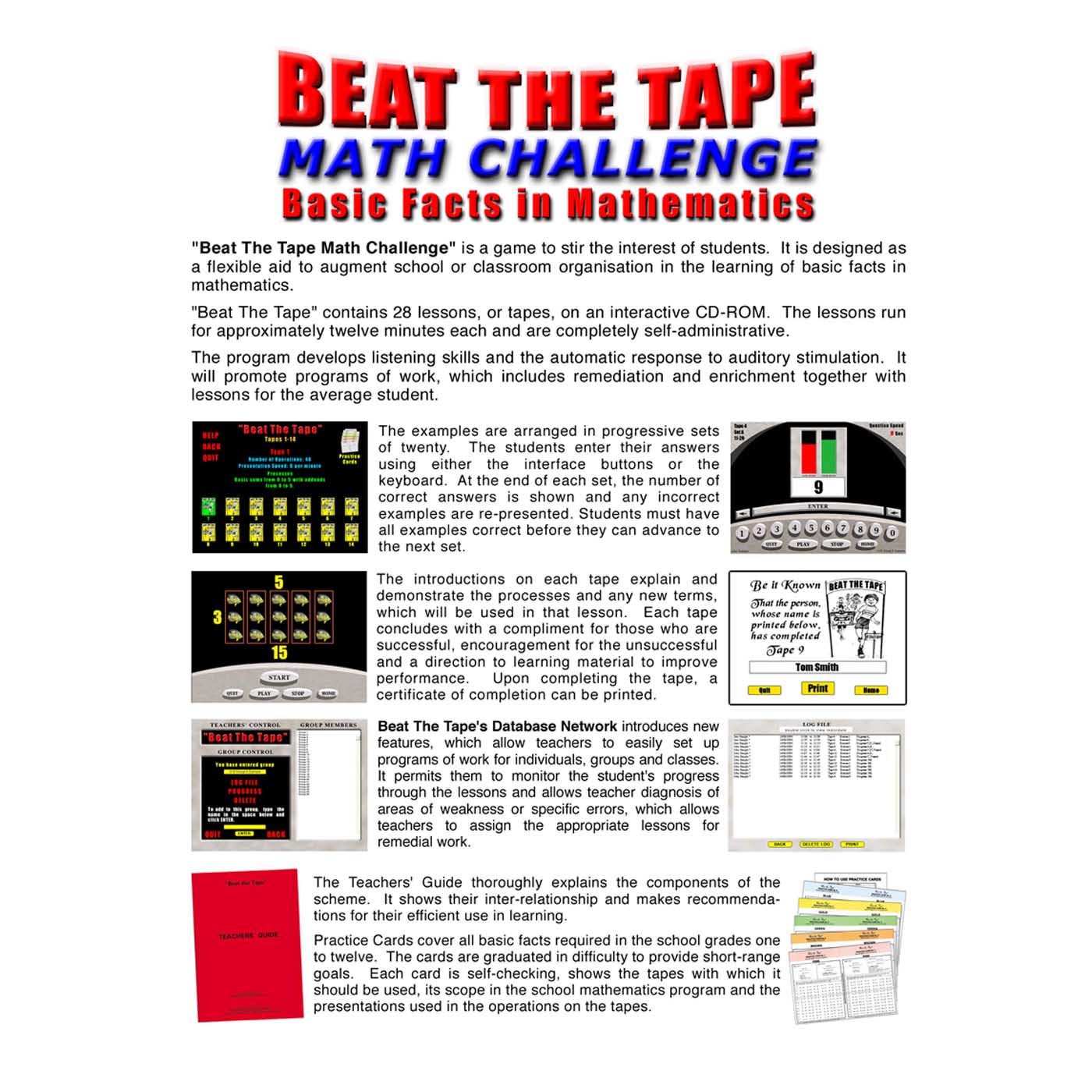Description
“Beat The Tape Math Challenge” is a multi-level high interest scheme suited to the age range 6 years to adult. The program is built on “Beat The Tape’s” thirty years of proven success in schools throughout Australia as a valuable teaching resource for the learning of basic facts in mathematics, first as a 28 tape audio cassette tape program, from which it gained its name “Beat The Tape”, and then as an interactive computer based version titled “Beat The Tape on CD ROM”.
“Math Challenge” improves and refines “Beat The Tape on CD ROM”, while retaining the program’s original objective of providing a flexible teaching resource to augment classroom organisation in the learning of basic facts in mathematics designed to stimulate and develop listening skills and facile response to spoken language.
“Beat The Tape Math Challenge” introduces new networking features which allows teachers to easily set up programs of work for individuals, groups or classes, and allows them to monitor the students progress through the lessons and permits teacher diagnosis of areas of weakness or specific errors and assign the appropriate recordings for remedial work.
The networking feature also permits the students to monitor and record their progress through the lessons and allows them to retain their place in a lesson from session to session. “Beat the Tape” is designed as a flexible aid to augment school or classroom organisation in the learning of basic facts in mathematics.
The program’s 28 lessons promote programs of work that include remediation and enrichment together with lessons for the average student.
The graduation of difficulty through the lessons poses short-range attainable goals.
The lessons help in developing listening skills and facilitate the automatic response to auditory stimulation.
The variations in presentation of the lessons ensure student interest, practice in discrimination and the use of basic facts in a language context.
Beat the Tape is self-administrative, self-checking and develops student independence and self-satisfaction in achievement.


